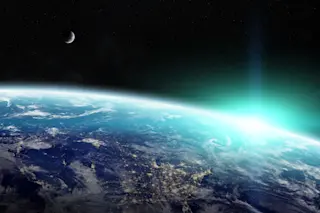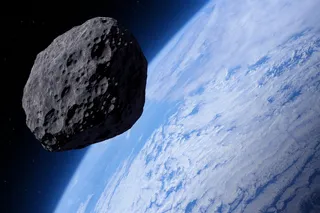(Credit: sdecoret/Shutterstock) Every time astronomers discover another exoplanet, the first question is,"Does it look like Earth?" Finding an Earth-like exoplanet would certainly increase our chances of finding life, as we know it, on that distant world. We could finally prove that we're not all alone in this big, cold universe. But, when we see planets described as Earth-like, we should be skeptical. With our current instruments, it's hard for us to even find other planets out there (although it's gotten much easier), much less see if there are oceans, atmospheres, plants or animals. Furthermore, what does it even mean to be "Earth-like?" Does it just need to be in the habitable zone? Or does it need to have liquid water and a similar atmosphere?
The question likely won't be resolved anytime soon. While some progress is being made using the starlight that filters through a planet's atmosphere to detect what ...














